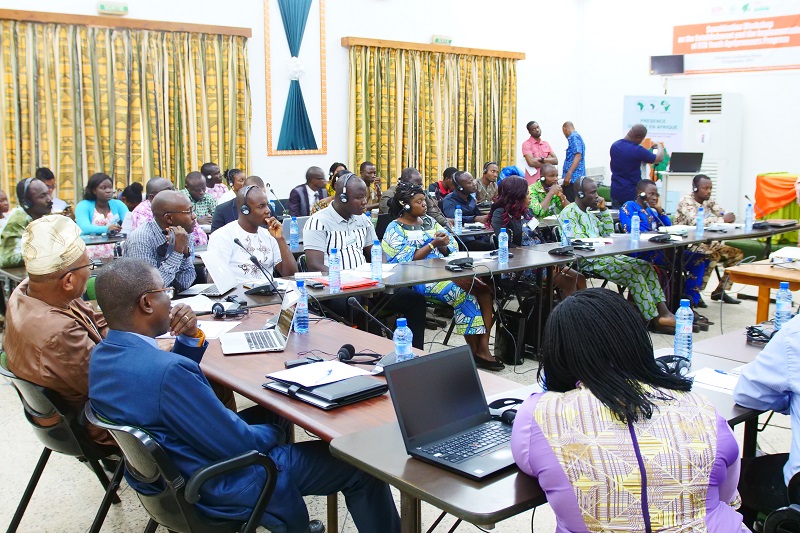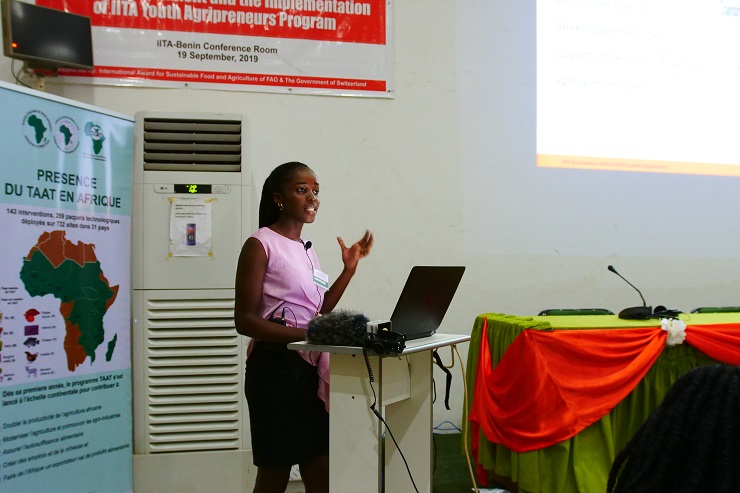
By Adetola Adenmosun
The Youth in Agribusiness compact of Technologies for African Agricultural Transformation (TAAT) also known as Empowering Novel Agribusiness-Led Employment (ENABLE TAAT) has registered its presence in the Republic of Benin.
The move came with the establishment of an agribusiness incubation centre in Cotonou on the 19th of September 2019.
The incubation centre, which aspires to leverage on partnership with some in-country youth in agribusiness related programmes, will provide a platform for training Beninese youth on the technologies promoted by the TAAT programme with a view to encouraging the establishment of more youth-led agribusinesses.
Sponsored by the African Development Bank (AfDB) as part of its Feed Africa Strategy of 2016–2025. TAAT’s overall objective is to harness high-impact, proven agricultural technologies to raise agricultural productivity in Africa; mitigate risks and promote diversification and processing in 18 agricultural value chains within eight Priority Intervention Areas (PIA).
The programme increases agricultural productivity through the deployment of proven and high-performance agricultural technologies at scale along selected nine commodity value chains which include Maize, Rice, Wheat, High Iron Bean, Cassava, Orange Fleshed Sweet Potato, Sorghum/Millet, Livestock and Aquaculture.
These work with six enabler compacts addressing transversal issues such as soil fertility management, water management, capacity development, policy support, attracting African youth in agribusiness and fall armyworm response.
It would be recalled that the implementing agency for ENABLE-TAAT, International Institute of Tropical Agriculture (IITA), recently through its Youth in Agribusiness initiative, won the 2019 International Innovation Award for sustainable food and agriculture.
Funded by the Government of Switzerland and the Food and Agriculture Organization (FAO), the award was in recognition of IITA’s commitment to improving both agribusiness opportunities and creditworthiness of youth across Africa.
The award came with the cash prize of USD20,000, prompting ENABLE-TAAT to partner with the initiative in the establishment of a youth in agribusiness programme in the Republic of Benin.
The ENABLE-TAAT Compact Coordinator, Ms Evelyn Ohanwusi who received the award on behalf of the organization in June 2019 said the award has given IITA/ENABLE-TAAT the opportunity to extend its scope beyond anglophone countries.
She said the team had desired to start a youth in agribusiness group in a francophone country but had to shelve the plan due to lean resources. “But with this award, we would leverage on other in-country programmes for sustainability and expansion,” she added.
Leaders and representatives of various youth groups, organization and other stakeholders in the Beninese agricultural sector participated in the implementation workshop in Cotonou to kick-off agribusiness incubation activities in the country,
In his keynote remarks, the Head of the TAAT Clearinghouse, Dr Mpoko Bokanga, said the compact is establishing its activities in Benin at a

time the government of the country is exploring several opportunities to ensure eradication of youth unemployment in the country. He added that the activities of the compact would serve as a platform to showcase how youth can be gainfully employed along various agricultural value chains.
Representative of the Food and Agriculture Organization (FAO) in Benin, Mr Jean Adanguidi commended ENABLE-TAAT and IITA for priortising the youth in Republic of Benin as beneficiaries of the agribusiness incubation programme facilitated through the cash received from the award.
He also welcomed the initiative as the incubation centre is coming to the country came at a time that FAO is collaborating with the government of the country to develop strategic programmes targeted at reducing the rate of unemployment among women and youth in the country.
The agribusiness incubation centre would be established at the IITA station in Benin. A total of 15 youths aged between 18-35 years will be selected from regions around the proposed agribusiness incubation center.
The training is intended to build technical, entrepreneurial and soft skills of the selected beneficiaries. The youths would be taken through the value chain opportunities of selected commodities- rice, aquaculture and casssava with details on production, processing, storage, marketing, and the use of ICT and mechanization techniques.
The trained youths are expected to set up agribusiness enterprises following market survey and analysis. The youths will manage agribusiness enterprises at the incubation centre, and the businesses are expected to generate revenue for the youths and maintenance of the established facility.
As youths graduate from the incubation centre, they would be linked up with financial institutions so they can be weaned from the incubation host and scale out their businesses.

